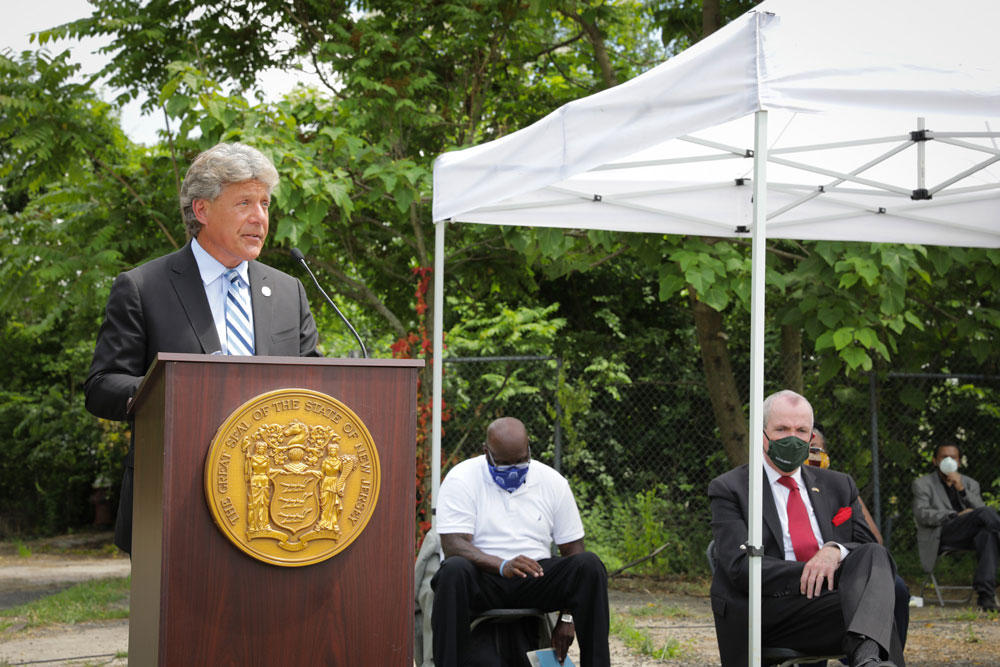
September 18, 2020; Philadelphia Inquirer
Last week, New Jersey’s governor, Phil Murphy, took a step forward in preventing new environmentally damaging projects from siting themselves in “burdened communities,” which are defined as any census tract “ranked in the bottom 33 percent of census tracts in the state for median annual household income.”
Murphy claims that the bill means that New Jersey is now “home to the strongest environmental justice law in the nation,” and state environmental nonprofit leaders seem inclined to agree. “This will be one of the strongest environmental justice bills in the nation,” says Jeff Tittel of the Sierra Club’s New Jersey chapter. “This is a major step forward to truly help protect these communities.”
Melissa Miles, executive director of the New Jersey Environmental Justice Alliance, is equally effusive in her praise: “This legislation is a critical step towards ensuring that all residents of New Jersey, regardless of their zip code and color of their skin, have the right to good health, clean air, and safe waters.”
The law signed by Murphy is the product of over a decade’s organizing and will go into effect in March of next year. The new law empowers the state’s Department of Environmental Protection (DEP) to deny permits if a project review finds “cumulative impacts” on public health, considering “combined past, present, and reasonably foreseeable” future environmental damage.
The state’s DEP must keep an updated list of the burdened communities, including those where 40 percent of the residents identify as lacking fluency in English, as recorded in the latest census. The agency would be able to deny a permit for a project that would “constitute an unreasonable risk to the health of the residents of the burdened community and to the environment in that community.”
Sign up for our free newsletters
Subscribe to NPQ's newsletters to have our top stories delivered directly to your inbox.
By signing up, you agree to our privacy policy and terms of use, and to receive messages from NPQ and our partners.
These new projects, or expansions of existing projects, include power plants, sewage treatment plants, sludge operations, and landfills. Zoning has long favored siting these projects, which have considerable health hazards, in low-income communities and communities of color, one of many common urban practices that embed structural racism, as data from multiple studies widely document.
One Harvard study, released in April, emphasizes the significance of exposure to air pollution in New Jersey to the number of individuals with COVID-19. Another study released last week from the State University of New York and ProPublica, also found the polluted communities felt a greater impact from the pandemic.
To celebrate Juneteenth, the day in 1865 that enslaved Black people in Texas gained their freedom, Murphy announced that he would support new protections for environmental justice, reversing inequities and the existing systemic racism. Following the law’s passage, Murphy said in a statement that the law sends a clear message that the state will no longer “allow Black and brown communities in our state to be dumping grounds, where access to clean air and clean water are overlooked.”
This action is a historic step to ensure that true community input and collaboration will factor into decisions that have a cumulative impact for years to come.
Cory Booker, a US senator from New Jersey, supported the law and says he intends to continue pushing for similar regulations on the federal level. “Clearly, on environmental justice, wherever the United States is going, New Jersey is going there first,” Booker says.
“I know all too well the environmental degradation that I have suffered from,” said Kim Gaddy, an environmental justice organizer for Clean Water Action and a lifelong resident of Newark’s South Ward. “The victory is for each and every one of us.”—Marian Conway













